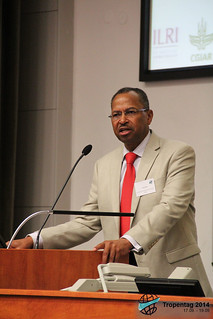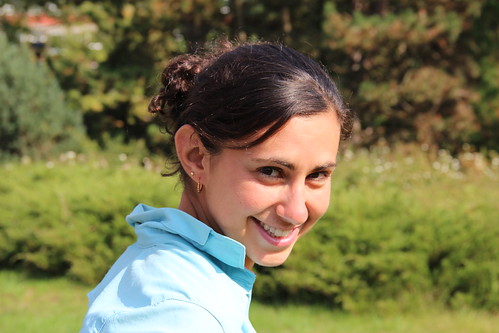Pramila Thapa's blog
“Saving food saves resources”— Tanja Pickardt
Mon, 09/22/2014 - 21:01 — Pramila Thapa
‘In general, one-third of the food produced is lost’ said Tanja Pickardt during a presentation at Tropentag. According to FAO, loss varies with type of the food produced. For example, the loss in grain is less as compared to fruits, vegetables, and dairy products. Pickardt said that it is necessary to quantify the food loss before making policy decisions, but it is very difficult to quantify the actual quantity of food wasted. To illustrate this point, she showed a video by FAO titled "Food Wastage Footprint 2". The environmental and social consequences are more difficult to quantify than economic losses. Also in this video, we can see different ways to reduce food loss and alternative uses of wasted food.
 (Continue...)
(Continue...)
 (Continue...)
(Continue...)
“Camel to human”— Anne Liljander on Nutritional Security or death?
Mon, 09/22/2014 - 14:10 — Pramila Thapa
Animal with robust health that can survive in harsh environmental conditions, camel is a good opportunity for nutritional security in South Saharan Africa, SSA. The milk and meat from camel is really good for the human health said Anne Liljander in her presentation tin Tropentag 2014, Prague. But who knows if the same camel carries the deadly virus?
With the outbreak of a deadly disease in Saudi Arabia in 2012, Middle East Respiratory Syndrome (MERS) caught an attention of researchers. Out of 250 human infections, 93 cases were reported fatal. Most of the people with this viral infection confirmed with this virus had serious respiratory illness. Anne and her team conducted research to find out the source of the virus. Finally, the viral strain was found in humped dromedary came that were imported from African Peninsula.
Getting back to the SSA, in Kenya, they found that 29% of camels were MERS positive. In the sample from 1992 (Kenya) and from 1983 (Somalia and Sudan), the camels had antibodies to MERS-Cov. It is always interesting to know if zoonotic diseases are fatal. Who knows if another “Evola-like” disease is too near to be pandemic? All the best for success on sustainable solution for the research team!
“Produce More with Less” – Jimmy Smith on Transforming Smallholder Livestock Systems
Thu, 09/18/2014 - 09:58 — Pramila Thapa “It’s about making livestock systems more sustainable,” Jimmy Smith said about the research undertaken by the International Livestock Research Institute (ILRI). Speaking at the Tropentag conference this year in Prague, Smith stressed that smallholder livestock producers can meet the growing demand of animal products in developing countries. What is required, however, is a system transformation. In order to be sustainable, such a transformation would result increased productivity with limited resources, or in Smith’s words, “producing more with less.”
(Continue...)
Blog post by Pramila Thapa and Rachel Friedman
“It’s about making livestock systems more sustainable,” Jimmy Smith said about the research undertaken by the International Livestock Research Institute (ILRI). Speaking at the Tropentag conference this year in Prague, Smith stressed that smallholder livestock producers can meet the growing demand of animal products in developing countries. What is required, however, is a system transformation. In order to be sustainable, such a transformation would result increased productivity with limited resources, or in Smith’s words, “producing more with less.”
(Continue...)
Blog post by Pramila Thapa and Rachel Friedman
Rachel, Student Reporter 2014–"Translating technical findings for practitioners"
Tue, 09/16/2014 - 13:01 — Pramila Thapa
Rachel Friedman, with a first degree in environment science and masters in science communication, has a passion for translating technical findings for development practitioners and the general public. With experience in blogging and social media, she is excited to report on the research presented at the Tropentag conference 2014, Prague.






